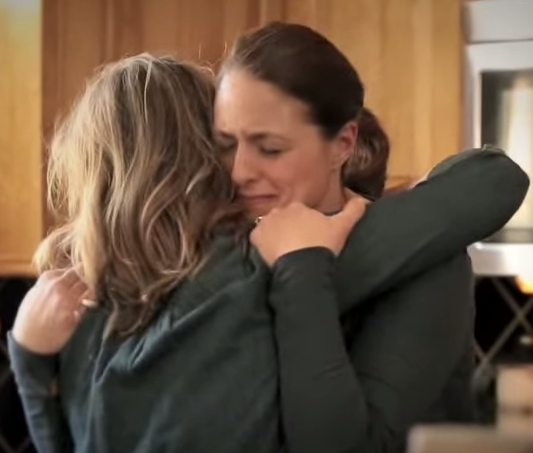Firefly Sisterhood is astounded by the amazing resources and professionals doing great work in our local cancer community. We met one of them, Donna DeGracia, MPAS, PA-C, when she volunteered her students at St. Catherine University’s School of Public Health to scientifically study the benefits of our one-to-one matching program. After her own breast cancer diagnosis, Donna wrote Reconstructing Hope: Intrusions, Oxymorons & Transformations in the Breast Cancer Marathon, and we are proud to feature her writing in today’s blog.
I had been a healthcare provider for almost thirty years when I was diagnosed with breast cancer. I thought I knew about the disease until then, but I was wrong. Breast cancer took me to places I had never been. The journey was full of surprises.
At first it was a lonely journey. Large g roups were not my thing. I felt alone in the crowds of celebrating survivors and families. I couldn’t connect.
roups were not my thing. I felt alone in the crowds of celebrating survivors and families. I couldn’t connect.
That all changed when friends started to contact me with questions about their own breast cancer diagnosis. I realized that I was not alone. We all had questions. We were all looking for connections. That realization led me to a project that morphed into a book. I set out to interview breast cancer survivors, their families, and their medical providers.
I started out by talking to friends who then recommended I talk to others and my interviews snowballed from there. They weren’t really interviews, they were more like conversations with friends. Breast cancer was like a secret handshake that turned perfect strangers into dear friends. My feeling of isolation dissolved as I listened to their stories and shared my own. I learned a lot from the experience:
- We need community. Breast cancer, though common, can be an isolating experience. Shared experience creates community. Being with others who have been through it is incredibly therapeutic.
- We need support. It is often the little things that mean the most. One person I interviewed talked about a friend who sent her a text every morning that said “Good morning sunshine”.
 That text brought a smile to her face each time. A card, a book, a hug, an offer to do a simple chore can mean a lot.
That text brought a smile to her face each time. A card, a book, a hug, an offer to do a simple chore can mean a lot. - We are not alone on our journey. We take others along with us. Our families, friends, co-workers, and others can support us and can suffer with us. Acknowledging each other’s feelings and being open to them is important. Many people don’t know what to say. That’s OK. Being present says a lot.
- We will never be the same again. The breast cancer journey is transformative one. Life will never be exactly the same as it was before. The transition can be difficult. It may require adjustments in relationships, activities, and priorities. It can also be liberating. Many people feel they come out with a better understanding of what is important in life, with a new joy of living.
A breast cancer diagnosis is a frightening thing. It is the start of a long journey with a lot of ups and downs, but you are not alone. There are people around  you who know the secret handshake. They can offer community and support. They understand. They can share your tears and your joys and help you through the other side. Even when treatment is finished and you are feeling misunderstood because your life or your perspective has changed, they are there with you. Reach out and share you joys and your pain.
you who know the secret handshake. They can offer community and support. They understand. They can share your tears and your joys and help you through the other side. Even when treatment is finished and you are feeling misunderstood because your life or your perspective has changed, they are there with you. Reach out and share you joys and your pain.
I am forever grateful for the many people who shared their stories with me and helped me to process my own.
Donna Sidwell DeGracia is a physician assistant and an educator whose life and work have taken her from distant corners of the globe to intimate conversations about aspects of life that patients may not have shared with anyone else. Sometimes it is her own experiences as a patient, or as one acculturating to a new culture, that give her the insight needed for difficult conversations. As an educator, she is adept at breaking difficult topics into easily understood components. Her writings reflect her experience and perspective as well as the humility of one who has had the honor of walking with others through their pain. She recognizes both the need for and the fragility of hope as well as the difficult task of reestablishing or reconstructing hope that is lost. Her book, Reconstructing Hope, is available for purchase.
